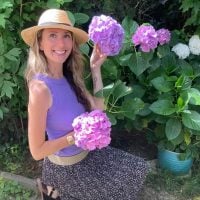I’ve now been in a committed relationship for almost a year.
Devotion to my partner, as well as to our couple unit, has enabled my reasoning to completely shift when it comes to the concepts of long-term and of commitment.
Since the start of my spiritual journey, I never really felt aligned with the possibility of losing my own sense of freedom and I was scared that long-term relationships would take me away from my own path and independence—therefore most likely repulsing potential partners.
I wasn’t ready to enter a stable partnership because I was scared it wouldn’t allow myself to evolve on my own spiritual journey and experience what I need to experience in order to grow.
I was assimilating freedom with the possibility of always traveling, having only the daily schedules that I wanted, being free to change locations, and most importantly, feeling completely unrestricted to evolve.
However, I have been surprised for a year to see that this relationship I’m now in hasn’t taken me away from my own spiritual path. I have found ways to ease the tension that any long-term commitment would create in the past within myself.
If I delve deeper into the core of this evolution, it goes back to a greater integration of a part of myself—I call her “Anna”—who would consider the lack of attachments of any type as her guiding principle in life.
Until recently, this part of myself was guiding my way especially in the area of romantic relationships.
To sum it up, “Anna” is the free-spirited self within me. She loves the concept of “nonattachment,” and the only form of long-term container that she resonates with is her own sense of purpose. As a consequence, change is her base and commitment is always perceived as a trap or a block on her way to self-realization.
Anna enjoys being in a state of flux because otherwise she feels caged. She most often withdraws from long-term situations and possible anchoring. Anna feels easily trapped in committed relationships, and once this happens, she becomes drawn to the fact of feeling free and “unattached” again in order to be back to living without restrictions.
Anna’s way of experiencing and seeing life has oftentimes felt far away from the other parts of myself and my main morals.
Until this past year, I was experiencing an inner conflict. A part of myself was desiring more than anything to call in a partner who I could build with, meanwhile the other part of me, or Anna, desiring to not settle in order to keep her own sense of freedom.
Those months taught me a lot about how to reconcile those distinct parts of myself. I have learned that being in a stable partnership doesn’t mean losing one’s freedom, which is something I never fully resonated with since I started my spiritual journey.
I have become aware that my desire to make sure I would feel free was also a way to run away from relationship growth and to find excuses from working on couple issues when they would come up. In the past, I would find faults in my partner’s behaviour or focus my attention on those in order to have a way out.
I would think to myself that those avoidant traits of mine were simply a fear of losing myself or my independence in relationships, while actually I was also running from deeper attachment issues or wounds within that I needed to heal.
In other words, this desire for freedom was linked to a withdrawal from facing a more profound healing.
This time, I haven’t gone back to my old behavioural mechanisms. I have decided to lean into the relationship and embrace it fully, which means always trying to understand the roots of my emotions and fears within without linking them to my partner or blaming him.
I have been able to express my needs or to take space when needed in order to fulfill my own interests, passions, or goals. I have always checked in with myself to make sure I would remain aligned and not go into self-betrayal mode in order to keep the relationship.
As a consequence, I never felt that I was losing my own sense of freedom or sense of self in the context of our connection.
The freedom that’s allowed through this relationship is not the one of constantly traveling, searching, or running away—but the one of feeling free to be oneself, daily, even in the presence of another.
This extends one’s sense of freedom to a bigger container, the one of the relationship unit. I not only feel free when going somewhere new—adventuring, meeting new people, or having new experiences—but also in our daily life as I release the armouring that I had in intimate relationships.
In fact, in the past, I would hardly ever feel safe enough in relationships to behave in my own way. I would try and hide simple things—that I sleep and wake up late, the way that I organize my schedule, that my inspiration to write most often comes when I’m not expecting it.
This new way of life provides me with the love, nurturing, joy, and even comfort that a partner can give. Freedom no longer means “going elsewhere,” but of feeling fully free to be myself where I am, in this moment.
The main thing that I’ve understood through this process is that one can always move past their own emotional limits, fears, or blockages. Life keeps offering opportunities to expand the awareness that we have about ourselves and try something new.
I also learned that the path to integrating one of our parts is through presence, space holding, and listening.
“Anna’s” perceptions of freedom, attachments, and relationships are being taken on board with the rest of my personality-self without generating major inner conflicts any more precisely because they haven’t been pushed away or repressed, but rather, allowed to come back to consciousness in time.
Giving names to parts of ourselves that we want to work with can be truly efficient, as it allows us to structure our inner conversations. Instead of connecting to a vague emotion or sensation within, one can connect to the actual part of themselves that is feeling this way.
If you resonate with this message and have yourself also sensed that an aspect of you was resistant to commitment in the romantic area, you may be interested in listening to your fears and asking yourself those few questions:
>> What do you fear to lose by committing to someone?
>> Has someone in your childhood restricted you from being who you were?
>> When in your life have closeness and intimacy been experienced as losing your own free will or authentic self?
>> What are the key traits that you know about yourself and that you would never let go of or repress in the context of a partnership?
~


 Share on bsky
Share on bsky





Read 8 comments and reply